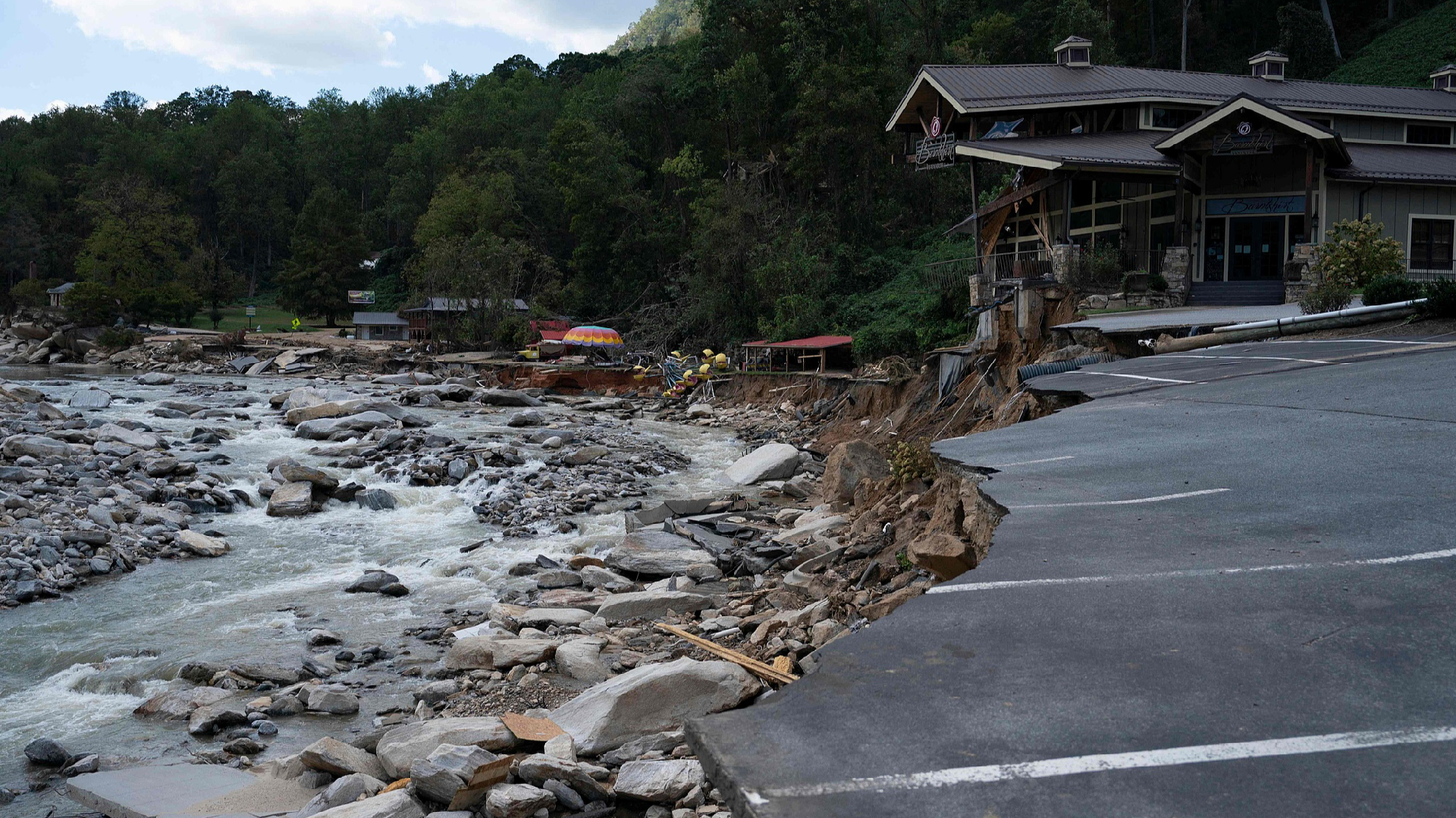Over 200 dead from Helene, ongoing search for the missing
The number of fatalities surpassed 200 on Thursday in the southeastern U.S. states affected by the hurricane, while rescue teams and volunteers persist in their efforts to locate those missing.

The precise number of individuals missing or unaccounted for remains uncertain, but the death toll reached 215 on Thursday as additional victims were discovered, marking Helene as the deadliest hurricane to strike the U.S. mainland since Katrina in 2005. Approximately half of the casualties occurred in North Carolina, with many others reported in South Carolina and Georgia.
Along the Cane River in the Blue Ridge Mountains of western North Carolina, rescuers from the Pensacola Volunteer Fire Department worked diligently to navigate through fallen trees nearly a week after a torrent of dark, muddy water surged through the valley for hours.
In a neighboring county near the Tennessee border, crews had just completed clearing major roadways and started to address the side roads that meander through switchback paths and over small bridges—routes that can be particularly challenging in favorable conditions. Each road posed new difficulties.
"Everything is fine, and then they come around a bend and the road is gone – it's one big gully or the bridge is gone," noted Charlie Wallin, a commissioner in Watauga County. "We can only get so far."
Most of the individuals the crews encountered were in good health but needed water; however, Wallin mentioned that each day brings new requests to check on those who haven't been heard from, making it difficult to predict when the search will conclude.
Electricity is being gradually restored, with the number of homes and businesses without power now under 1 million for the first time since the previous weekend, as reported by poweroutage.us. The bulk of these outages are in the Carolinas and Georgia, areas that Helene impacted after making landfall in Florida on September 26 as a Category 4 hurricane.
On Wednesday, U.S. President Joe Biden made the decision to deploy "up to 1,000 active-duty soldiers to support the delivery of food, water, and other critical commodities to communities affected by Hurricane Helene" immediately.
This active-duty military assistance is in addition to the more than 1,000 North Carolina National Guard soldiers already on the ground, engaged in delivering food, water, supplies, and conducting search and rescue missions, according to North Carolina Governor Roy Cooper.
The governor remarked on Thursday that "around-the-clock efforts continue to provide resources and assistance" to communities in the western region of the state.
Biden visited the Carolinas on Wednesday to assess the damage and is expected to travel to Florida and Georgia on Thursday. The White House announced that he will continue to evaluate the impact of Helene and meet with state and local leaders to discuss ongoing recovery efforts.
"The president and his entire administration will continue to do everything in our power to help the people of Florida, Georgia and every community affected by this storm," the White House stated.
Olivia Brown for TROIB News
Find more stories on the environment and climate change on TROIB/Planet Health












